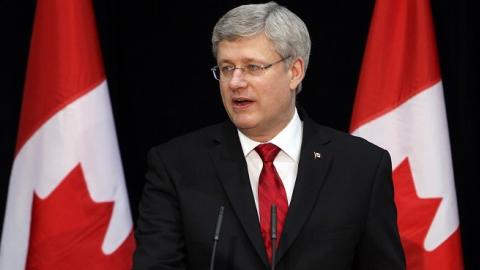Canada's role in U.S. President Barack Obama's overture to the Cuban government has been quickly overshadowed by that of Pope Francis, and by the raucous debate that followed in Washington, D.C. But it is a role that is worthy of comment, representing as it does a too-rare instance of principle guiding policy.
Skepticism is natural, but before giving in to cynicism about the motivations of Canadian Prime Minister Stephen Harper and Foreign Minister John Baird, ask yourself what Canada gains from hosting the talks between the Obama administration and the Castro brothers.
Cuba is currently a minor trading and investment partner for Canada, as well as a holiday destination. If the United States ends its policy of isolation of Cuba, there will be more competition for investment opportunities, trade, and good spots on the beach. As long as Canada was a wealthy non-participant in the U.S.-led embargo and travel ban, it was an attractive partner for Havana. Now, as when President Richard Nixon followed Prime Minister Pierre Trudeau in establishing relations with Communist China, it is probable that Canadian investors and politicians will find themselves overlooked by Cubans whose attentions may now shift to the more assertive Americans.
Then again, Canadian foreign policy has often been said to be principally a policy toward the United States with other countries taking second place politically and strategically. If brokering talks between Havana and Washington was intended by the Harper government to win favour with U.S. leaders, the results were predictably mixed. Obama and Secretary of State John Kerry gave Canada perfunctory credit for its help, while Republicans in Congress angrily condemned the Obama gesture -- and pledged that the U.S. embargo, which can only be lifted by congressional action, would remain in place.
Washington pundits saw in Obama's outreach to Cuba the domestic political focus that has been a hallmark of this administration -- it lumped together and riled up two Cuban-American senators, the moderate Marco Rubio of Florida and the more radical Ted Cruz of Texas, and made them appear to be the familiar, angry anti-communist stereotype of Republican foreign policy thinkers of the Cold War era, despite the fact that both men are more than a decade younger than Obama himself. Whether this was Obama's aim or not, this would have been an added benefit to a gloss of historic significance to an otherwise lacklustre foreign policy legacy.
Yet to the extent that Obama's Cuba gambit hurt congressional Republicans, it was of questionable benefit to Canada to become associated with it. Congressional Republicans, soon to gain control of both chambers, are the Harper government's best chance of winning approval for the Keystone XL pipeline before Obama leaves office. And some of the Congressional Republicans who are considered to be influential voices in U.S. foreign policy, including Rubio, Cruz, Kentucky Senator Rand Paul and Arizona's John McCain all condemned the opening to Cuba. Canada's Conservative government had won plaudits from all four for its leadership on Ukraine and Russia, Syria and ISIS.
This may have given Harper and Baird the confidence that they had enough credit with leading Republicans to spare some in an effort to win points among Democrats by offering Canadian good offices to bridge the decades-old U.S. divide with Cuba. Yet when Obama took churlish cheap shots at the Keystone XL pipeline in his final press conference of the year, Ottawa could have no illusions that its Cuban diplomacy had earned it even diplomatic niceties on Keystone.
This leads me to conclude that for the Harper government, brokering an opening -- however tentative -- between Washington and Havana was a risk worth taking on principle. For many Canadians, the injustice of the United States' isolation of Cuba outweighs the injustices the Castro government has imposed on Cuba's people in order to retain its hold on power. Indeed, as I have heard from many Canadians whose views I have come to respect, the ultimate injustice of the embargo has been its role in keeping the Castro brothers in power. Ending Cuba's isolation is a means to ending the Castro dictatorship in this view: as Cubans encounter alternatives to the tired propaganda of the Cuban revolution, and are inspired by the possibilities of freedom, they will change Cuba of their own accord.
It is not necessary for me to agree with this view -- it hasn't worked to promote political opening in China or Vietnam -- to acknowledge that this view is principled, and as such a noteworthy exception to the cynical view that foreign policy is driven by calculation and atavism alone.

















